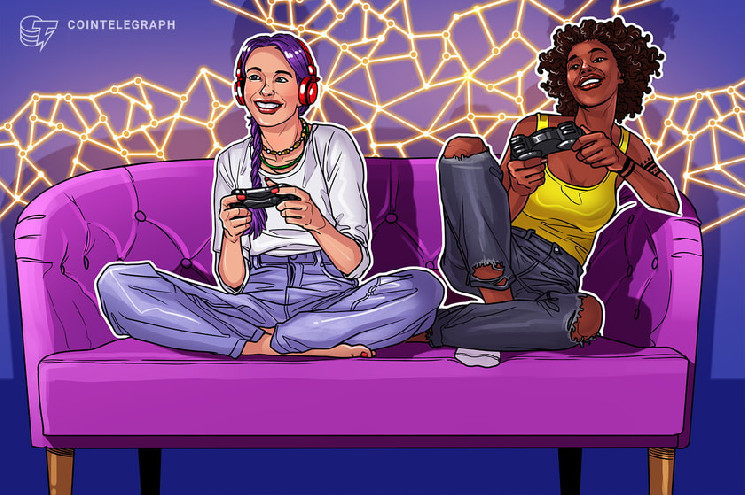Nolan Bushnell, the founder of Atari and inventor of Pong — one of the first commercially successful video games — has shared optimism for the future of Web3 games, particularly as it comes to bringing ownership to virtual worlds.
During the Digital Entertainment Leadership Forum in Hong Kong on Aug. 25, Bushnell spoke alongside Animoca Brands co-founder Yat Siu, discussing the past, present and future of gaming. It was moderated by Sean Hung, the managing partner of Chiron Group.
Bushnell, who Yat Siu acknowledged as the “grandfather of gaming” — praised Web3 games for their ability to extend the concept of ownership into the digital landscape.
“Games will increasingly imitate all factors of life. Web3 with blockchain suddenly transmits ownership into the virtual world.”
The Atari founder currently serves as the Chief Knowledge Officer at Web3 gaming company Moxy — and kicked off the panel by sharing the topline details of a conversation he’d had with Siu in the days prior:
“I was just gobsmacked. I mean, we had you know, every once in a while you can have a conversation that changes your brain. We had one of those.”
I’m excited to be speaking at the DELF event. We’ve chosen Hong Kong for https://t.co/GNemkV0YDf’s entrance to the Asian Market https://t.co/phUuANd9LB
— Nolan K Bushnell (@NolanBushnell) August 15, 2023
While Bushnell launched into his prediction of a world in the not too distant future, where the inside of self-driving cars could become a mobile gaming studio, Siu pointed to the potential of Web3 games to help economically monetize gameplay, as games become a more ubiquitous part of everyday life.
“The impact that Web3 gaming has already had…is that you can start earning money with the engagement of the time that you spend in these games.”
Siu said that despite games originally taking the form of “player versus environment” systems, where gamers play against the non-player characters (NPCs), the world of gaming — as seen through the rise of Minecraft and Roblox — has evolved to become a multiplayer ecosystem.
“You don’t go to Fortnite to play against yourself or an environment. You go online to play against others, meaning that we, the players, are the content, but the difference is that we haven’t really been compensated for it,” Siu explained.
When asked what he saw as the biggest promise provided by Web3 games, Bushnell said that the combination of “KYC and the immutability of blockchain” were the best ways to ensure that players in online games were not bots or bad actors.
Additionally, Bushnell predicted that games would soon become an essential part of the classroom, with students learning best by way of “story and simulation.”
Related: Play-to-earn has fatal flaws: How can Web3 gaming be more sustainable?
While the positives of Web3 games were readily espoused, Yat Siu noted some of the issues that had arisen alongside the proliferation of blockchain gaming.
“When you introduce Web3 and blockchain to any system, including games, you’re introducing capitalism. And so the problems we have seen in the last 12 to 18 months comes from the fact that these games have become not just capitalist to the studio that produced it, but to every participant,” Siu said.
Despite the many flaws introduced by the financialization of games — many of which became readily apparent in the “toxicity” of play-to-earn games like Axie Infinity — Siu said that the inherently capitalist element would aid young gamers in gaining a financial education.
“If the world becomes more financially literate because of Web3 gaming — because they understand something about value — then I think the world will become safer.”
Magazine: Blockchain games aren’t really decentralized… but that’s about to change



